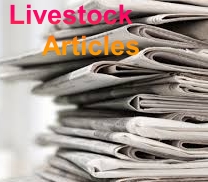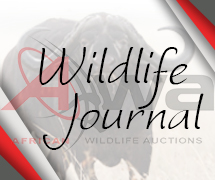Labelling of Pork Products
Pig Farming in South Africa
Farmers may allow their pigs to roam freely outside and use no genetically modified feed or antibiotics, but their produce will only qualify for free-range, organic or pasture reared labelling, if the label along with their production protocols are registered with the Department of Agriculture, Forestry Fisheries and regularly audited by an independent auditor, such as the South African Meat Industry Company (SAMIC).
In the absence of legislation governing the use of these labels, there are different interpretations of their meaning.
What is Sow Friendly?
The Sow-friendly label is used for pork meat where sows spend minimal time in individual pens.
Sows were traditionally confined to individual stalls for the entire gestation period of 16 weeks, because it was believed to help prevent miscarriages. The “sow friendly” food label is used for pork produced in a system where the sows spend very little time in these stalls – to qualify for the Woolworth sow friendly label, they may only be kept in the stalls during the first week of pregnancy, whereas they may be kept there for up to eight weeks to qualify for the PicknPay label.
Thereafter, the pregnant sows are grouped together and have freedom to more around and socialise before they are moved to individual farrowing crates a week before giving birth. While there are groupings who are against the use of farrowing crates, the majority of farmers and companies using this label allow the sows and their piglets to stay there for up to six weeks, until the piglets are weaned.
The argument for farrowing crates is that it enhances animal welfare by significantly reducing piglet mortalities, by easing management, preventing sows from crushing the piglets and ensuring piglets are warm enough and have good access to their source of milk.
Retailers usually have other specification with which producers also need to comply with to qualify for their labels. These generally relate to animal welfare, product traceability, animal health and veterinary treatments, feed and housing standards as well as transport and humane slaughter.
Free Range Production
Free range and pasture reared pigs spend most of their lives in camps outside.
Free range implies that the pigs are not confined in enclosures, but primarily fed outdoors and normally have free access to small paddocks. There are variations of this interpretation, with some of the farmers still making use of farrowing pens for up to six weeks to reduce piglet mortalities. Pigs will not be able to survive on forage or pasture alone, so should also receive supplementary feed.
Pasture Raised
Pasture raised is generally used for pigs that were raised outside on pasture, with most of their feed coming from forage but supplemented with legumes, grain and prepared feed.
Organic
People who are serious about this label will probably demand that it is only used for free-range pigs in sow-friendly production systems and that these pigs may only receive organically produced and registered feed and medicines. Antibiotics are generally not allowed, unless under extreme conditions. (No hormones are used in any form of pig production in South Africa, whether organic or not.)
Pork 360
Pork 360 is a quality assurance certification system of the South African Pork Producers Organisation.
Pork 360 is a quality assurance certification system of the South African Pork Producers Organisation.
It was registered with the Department of Agriculture, Forestry and Fisheries in 2015 and guarantees to both the consumer and retail sector that a producer has a consistent production process that complies with certain minimum standards.
These relate to food safety standards, sanitary and hygiene requirements, housing management, animal welfare, record-keeping, traceability, on farm production practices, pest control, feeding and feed quality, biosecurity, manure and water effluent management, transportation and the use of medication and vaccines.
Producers participate in the system by choice. They must have an accredited veterinary consultant who frequently visits, advises and evaluated the farm and production processes and an in-house Standard Operating Producers document, complying with the Pork 360 standards.
The farms are audited annually by an independent auditor to ensure the minimum prescribed standards are adhered to.








